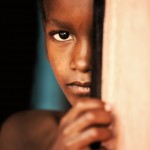
Recent studies have shown that pre-school children can be affected by post traumatic stress disorder (PTSD) and that the condition can last for years even after treatment.
Good quality randomised trials have shown that trauma-focused cognitive behavioural therapy can be a very effective treatment for older children and adolescents with PTSD, but there have been no well conducted randomised controlled trials with children aged 3-6 years old.
This small randomised controlled trial was conducted by researchers from Tulane University in New Orleans. They wanted to find out if trauma-focused cognitive behavioural therapy could be used to treat a range of traumas in very young children. The traumas included single events, repeated trauma (violence) and disaster (Hurricane Katrina).
64 children were included in the trial (all aged 3-6, mean age 5.3 years, 66.2% male, 59.5% African–American, 35.1% white). All children had recently experienced a life-threatening trauma and all had ≥4 PTSD symptoms.
The children were assigned to one of two treatment groups:
- 12 weeks of trauma-focused cognitive behavioural therapy, including training in coping skills, PTSD psychoeducation, recognition of feelings and graduated exposures to trauma-related reminders. The treatment involved the mothers and sometimes used cartoons and drawings
- 12 weeks of waiting list control. Children could receive the trauma-focused cognitive behavioural therapy after 12 weeks if they still met the inclusion criteria
The study reported that not all participants were randomly allocated, which makes the findings far less reliable. Hurricane Katrina interrupted the study and all patients included after the Hurricane were allocated to the trauma-focused cognitive behavioural therapy group until it was full.
However, despite this shortcoming the results are very promising:
- Trauma-focused cognitive behavioural therapy reduced mean number of PTSD symptoms compared with waiting list control at 12 weeks (1.48 vs 0.16 effect size, p<0.005)
- The groups showed no significant differences in reduction of other symptoms (ADHD, depression, oppositional defiant disorder or separation anxiety disorder, p>0.05)
The methodological weaknesses of the study mean that the results should be interpreted with caution, but nonetheless this research does show that cognitive behavioural therapies may be useful in the treatment of young children with PTSD.
Scheeringa MS, Weems CF, Cohen JA, Amaya-Jackson L, Guthrie D. Trauma-focused cognitive-behavioral therapy for posttraumatic stress disorder in three-through six year-old children: a randomized clinical trial. J Child Psychol Psychiatry. 2011 Aug;52(8):853-60. doi: 10.1111/j.1469-7610.2010.02354.x. Epub 2010 Dec 14. [PubMed abstract]
